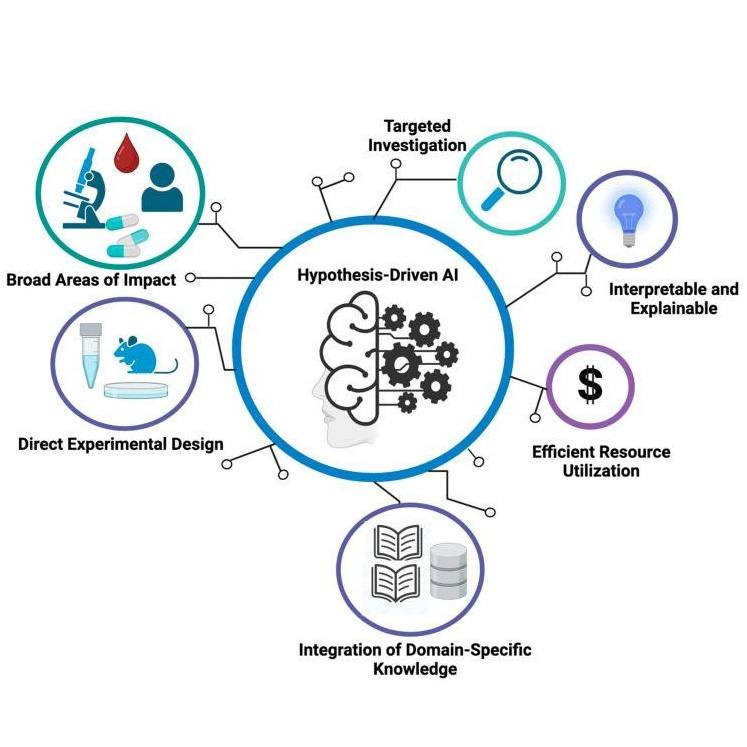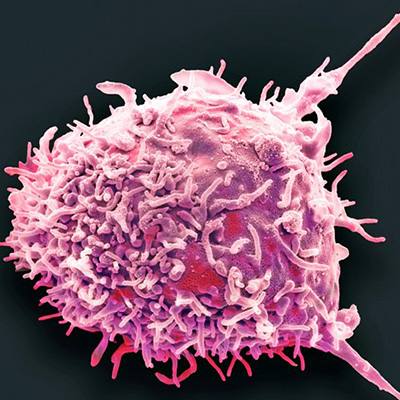-
Individualized Medicine
Mayo Clinic researcher finds potential target to control rare genetic disease that strikes in teen years

Patients with a rare genetic disease called familial adenomatous polyposis, (FAP), often face debilitating challenges. Typically striking in the early teenage years, FAP is characterized by hundreds to thousands of tiny polyps forming in the colon and rectum and leading to a nearly 100% percent likelihood that they will get colon cancer without a life-altering surgery to remove the entire colon.
Now, a new study from researchers at Mayo Clinic Center for Individualized Medicine, described in the New England Journal of Medicine, reveals patients with the most severe FAP disease may benefit from a novel combination therapy. The study points to a possible target for intervention and prevention.
Author Niloy Jewel (Jewel) Samadder, M.D., a gastroenterologist and cancer genetics expert at Mayo Clinic's campus in Ariz., and his colleagues, studied 171 patients with FAP who had various disease stages, at 20 centers in the U.S., Canada and Europe. Researchers evaluated the benefit and safety of the combination of eflornithine and sulindac compared to each drug alone. The investigation represents the largest international phase III FAP trial to date involving pharmaco-prevention — the use of a medication to prevent the need for surgery or other disease progression.

“While the overall incidence of disease progression was not lower, the combination therapy of the drugs sulindac and eflornithine reduced disease progression in pre-colectomy patients by around 70-80% compared to either drug alone, and none of these patients treated with the combination drug actually needed colon surgery during the four-year trial,” says Dr. Samadder.
FAP affects one in 10,000 people and is caused by a mutation in the APC gene, which leads to the formation of thousands of pre-cancerous growths in the colon or large bowel. Most patients inherit the faulty gene, but in nearly 25% of patients, there is no family history of FAP.
In its early stages, the disease can present with a change in bowel movement pattern, while late stages are characterized by bloody stool, long periods of constipation, abdominal cramps, lethargy and vomiting. In addition to colorectal cancer, FAP also increases the risk of cancers in the small bowel, stomach and thyroid.
“While the overall incidence of disease progression was not lower, the combination therapy of the drugs sulindac and eflornithine reduced disease progression in pre-colectomy patients by around 70-80% compared to either drug alone, and none of these patients treated with the combination drug actually needed colon surgery during the four-year trial,” says Dr. Samadder.
“This disease also carries a lot of psycho-social issues during that time in a teenager’s life,” Dr. Samadder says, “And it unfortunately comes with significant changes in quality of life after ones colon or large bowel is removed.”
Targeting inflammation pathways
Dr. Samadder, who has dedicated his career to studying rare genetic cancers, says his previous FAP studies show that the development of pre-malignant colon polyps are related to inflammation in the bowel, and understanding these pathways is critical for learning how polyps grow and progress.
“The drugs that can reduce inflammation in the colon may potentially reduce the formation of polyps,” Dr. Samadder explains.
In previous studies, Dr. Samadder and his team found one inflammation pathway can be targeted with the drug sulindac, which is in the same family of drugs as aspirin (NSAID). For his new study, the team targeted a second inflammation pathway with the experimental drug eflornithine.
“Prior studies have just looked at sulindac or other similar NSAIDs alone and shown a moderate benefit where it reduced the polyps in the colon but not enough where it could really prevent the need for surgery,” Dr. Samadder says.
“The drugs that can reduce inflammation in the colon may potentially reduce the formation of polyps,” Dr. Samadder
He says the combination of the two drugs is key to mitigating disease progression in the most severe FAP cases.
Large international study inspires path forward
During the study, patients were randomized to receive eflornithine, sulindac or a combination of both, and underwent upper and lower gastrointestinal endoscopy every six months to assess disease status. In all, Dr. Samadder says the trial did not demonstrate a significant reduction in disease progression in the overall population with the combination therapy compared to either drug alone.
“But importantly, when we looked at the 37 highest risk patients, who were placed in the trial before they needed their colon surgery, we saw a significant benefit,” Dr. Samadder explains. “We now need a full trial looking just at pre-colectomy patients to see if this combination drug can work.
Investigating rare genetic cancers
The new study is part of Mayo Clinic’s commitment to researching rare genetic cancers. Dr. Samadder is leading efforts to usher in a new era of genetic screening and detection that focuses on identifying hereditary cancers. He says research shows nearly 20 percent of cancer cases are linked to underlying inherited genetic mutations.
Mayo Clinic, with the support of the Center for Individualized Medicine, is moving toward testing all patients with cancer for inherited mutations — not just patients with cancer in their family history.
“But importantly, when we looked at the 37 highest risk patients, who were placed in the trial before they needed their colon surgery, we saw a significant benefit,” Dr. Samadder
“Everyone has some risk of developing cancer, and in most cases the disease develops by chance,” Dr. Samadder says. “However, some people are genetically predisposed to developing certain types of cancer. These people have a higher risk of developing the disease than those in the general public.”
He says genetic testing is critical for early detection of cancer when many are still curable and can also lead to important decisions regarding targeted therapies that can shrink the tumor and prolong survival.
Dr. Samadder and colleagues at Mayo Clinic's multidisciplinary inherited cancers clinic are working to identify high-risk patients and families, tailor approaches to cancer screening to detect cancers earlier and formulate more-effective individualized treatment protocols for these patients.
“And most importantly, we can help prevent cancer in their loved ones because it's genetic and they pass these genes onto their children,” Dr. Samadder says. “We can target prevention strategies for those high risk individuals and hopefully prevent cancer altogether.”
This study was sponsored by Cancer Prevention Pharmaceuticals Inc.

Learn more
Read more stories about advances in individualized medicine.
Register to get weekly updates from the Mayo Clinic Center for Individualized Medicine blog.
Join the conversation
For more information on the Mayo Clinic Center for Individualized Medicine, visit Facebook, LinkedIn or Twitter at @MayoClinicCIM
Related Articles







